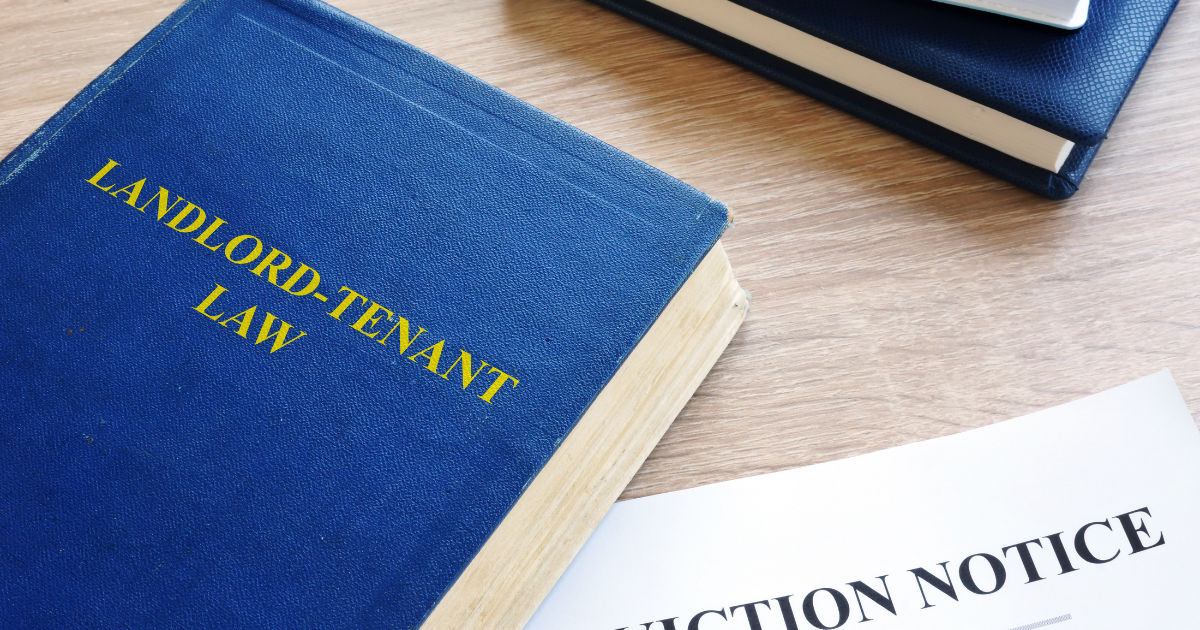Eastern District Upholds Ordinance Requiring Rental Property Inspections
The Fourth Amendment to the U.S. Constitution protects citizens from unreasonable search and seizures along with a need for a warrant judicially...
4 min read
Alan Nochumson : May 6, 2019 9:00:00 AM

Late last year, I wrote about a ruling recently handed down by Judge Nina W. Padilla of the Philadelphia Court of Common Pleas that allowed a landlord in Philadelphia to obtain possession of their property by way of an eviction proceeding despite lacking a housing inspection license and certificate of rental suitability at the time.
Last week, the Pennsylvania Superior Court in Frempong v. Richardson, 2019 Pa. Super. 139 (Apr. 30, 2019) overturned that ruling and, for the time being, clarified the statutory rights and obligations of residential landlords and tenants in Philadelphia under the Philadelphia Code.
Under Section 9-3202 of the Philadelphia Code, which is titled “Rental Licenses,” “no person shall collect rent with respect to any property that is required to be licensed pursuant to this section unless a valid rental license has been issued for the property.”
In Philadelphia, every property owner who leases a residential dwelling must obtain a housing inspection license for that dwelling. The housing inspection license is issued by the city of Philadelphia’s Department of Licenses and Inspections (L&I) and must be renewed on an annual basis for a fee.
Additionally, under Section 9-3903 of the Philadelphia Code, which is titled “Certificate of Rental Suitability; Required Tenant Documents,” an “owner of a property for which a rental license is required, at the inception of each tenancy, provide to the tenant a certificate of rental suitability that was issued by the department no more than 60 days prior to the inception of the tenancy” as well as “a copy of owner’s attestation to the suitability of the dwelling unit … and a copy of the City of Philadelphia Partners for Good Housing Handbook.”
As a practical matter, the certificate of rental suitability is obtained online on L&I’s website.
L&I will only issue a housing inspection license and a certificate of rental suitability for a leased premises if there are no violations of public record existing against the leased premises and the property owner is in good standing with the city of Philadelphia from a financial point of view (i.e., owing no monetary obligations such as taxes, etc. with Philadelphia).
The property owner obtains the certificate of rental suitability from L&I immediately upon applying for it online, assuming the property owner meets the criteria set forth above.
After obtaining the certificate of rental suitability, the property owner must sign and deliver it to the tenant, along with the associated Partners for Good Housing Handbook that may also be obtained online on L&I’s website.
The Partners for Good Housing Handbook sets forth the rights and obligations of leasing parties in the context of residential housing in Philadelphia.
Under Section 9-3901(4)(e) of the Philadelphia Code, if a property owner fails to obtain a rental license or provide the tenant with the signed certificate of rental suitability and the associated Partners for Good Housing Handbook, then the property owner “shall be denied the right to recover possession of the premises or collect rent during or for the period of noncompliance.”
Interpreting the language set forth in Section 9-3901(4)(e), Padilla in Frempong concluded that any property owner that does not comply with the requirements to obtain a rental license or provide the tenant with the certificate of rental suitability and the associated governmental handbook may only be denied the right to recover possession of the leased premises or to collect rent during or for the period of noncompliance.
In doing so, Padilla allowed the landlord in Frempong to obtain possession of the leased premises even though they failed to comply with the requirements set forth in the Philadelphia Code.
On appeal, the Superior Court in Frempong addressed whether Padilla correctly interpreted Section 9-3901(4)(e) of the Philadelphia Code under the circumstances.
The tenants in Frempong argued on appeal that the disjunctive word “or” in that section of the Philadelphia Code should be read conjunctively as “and” and, thus, a landlord who fails to obtain a housing inspection license for a leased premises and fails to obtain and deliver a signed certificate of rental suitability and Partners for Good Housing Handbook to a tenant should be barred from recovering possession of the leased premises and collecting rent from the tenant for the period of noncompliance.
In so arguing, the tenants in Frempong emphasized that Padilla ignored Section 9-3902(1)(a) of the Philadelphia Code which provides that “no person shall collect rent with respect to any property that is required to be licensed pursuant to this Section unless a valid rental license has been issued for the property.”
In Frempong, the Superior Court reviewed the question of statutory interpretation de novo.
Quoting another panel of the Superior Court in Wagner v. Wagner, 887 A.2d 282 (Pa. Super. Ct. 2005), the court in Frempong noted that “our state appellate courts have consistently held that when ‘applying the normal rules of statutory construction, the presence of disjunctive word ‘or’ in a statute indicates that elements of statute are met when any particular element is satisfied, regardless of whether other elements are also met.’”
Despite the foregoing, the Superior Court in Frempong disagreed with Padilla in her application of the word “or” in Section 9-3901(4)(e) and concluded that residential landlords in Philadelphia are prohibited from recovering rent as well as possession of the leased premises when the landlord lacks a housing inspection license and fails to obtain and provide a tenant with a signed certificate of rental suitability and the Partners for Good Housing Handbook.
The Superior Court in Frempong pointed out that “the statute is written in the passive voice (‘shall be denied’) and in reading the entire context of the statute it interpreted Section 9-3901(4)(e) to mean that a noncompliant owner may not recover possession ‘or’ collect rent, meaning he cannot receive either.”
Reprinted with permission from The Legal Intelligencer © 2019 ALM Media Properties, LLC. All rights reserved. Further duplication without permission is prohibited. For information, contact 877-257-3382, reprints@alm.com or visit www.almreprints.com.

The Fourth Amendment to the U.S. Constitution protects citizens from unreasonable search and seizures along with a need for a warrant judicially...

It is not uncommon for property owners to rent their vacation homes to short-term renters. Some individuals have made a business of marketing these...

In a recently published opinion, the Pennsylvania Commonwealth Court in Johnson v. Pocono Township Zoning Hearing Board, 2024 Pa. Commw. LEXIS 46...